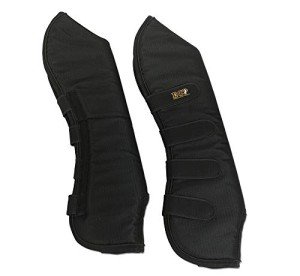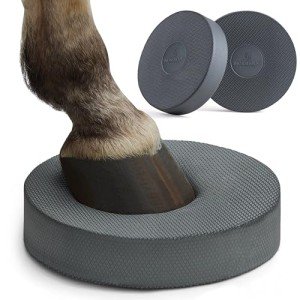When it comes to your equine friend, keeping them healthy and happy is a top priority. That's where horse physiotherapy comes into play. This practice dives deep into equine therapy techniques that help maintain and enhance your horse's overall well-being. Whether you're dealing with a performance horse or a beloved companion, physiotherapy can work wonders for their physical health.
One of the most significant benefits of horse physiotherapy is injury prevention in horses. Regular check-ups and treatments can help identify potential issues before they turn into serious problems. By focusing on equine flexibility and strength, you can help your horse stay in peak condition and minimize the risk of strain or injury.
But what happens if your horse does get hurt? Equine injury recovery often includes physiotherapy as an essential part of the healing process. Many techniques, like laser therapy for horses, are designed to enhance blood flow and promote faster recovery. This means your horse can get back to doing what they love sooner—and that’s great news for both of you!
On top of physical recovery, horse physiotherapy also offers equine pain relief and stress relief for horses. Just like humans, horses can benefit from therapies designed to ease discomfort and promote relaxation. Through targeted therapies, your horse will not only feel better physically but will also have a more positive attitude, making your time together even more enjoyable.
By investing in horse physiotherapy, you're not just helping your horse feel good; you're also supporting their equine musculoskeletal health and overall performance. With proper care and attention, your equine friend can continue to thrive, bringing joy to both them and you.
Signs Your Horse Needs Physiotherapy
Just like us, horses can experience discomfort and stress in their bodies. It’s essential to pay attention to the signs that indicate your horse might benefit from some care. Here are a few signs that could point toward the need for horse physiotherapy:
- Change in Behavior: If your horse seems more irritable or less willing to work, it could be a sign that they’re in pain or discomfort. Horses are usually cheerful creatures, so a shift in their behavior might indicate the need for equine pain relief.
- Difficulty with Movements: Notice if your horse struggles with certain movements or activities. An obvious hesitation to jump, run, or even walk could point to an issue that needs to be addressed with equine therapy techniques.
- Stiffness or Limping: Stiffness after exercise or noticeable limping can be a clear sign that your horse may benefit from physiotherapy. Maintaining equine flexibility is vital for overall health and performance.
- Increased Muscle Tension: If your horse has tight or hard muscles, they may be experiencing stress or tension. This could be a great opportunity to explore equine injury recovery options, including therapies like laser therapy for horses.
Regular checks can catch these signs early, helping you invest in your horse’s health and well-being. Using horse physiotherapy not only aids in injury prevention in horses but also contributes to horse performance improvement. Make sure you listen to your equine friend's body and provide them with the comfort they need!
How Physiotherapy Supports Recovery
Horse physiotherapy plays a vital role in keeping our equine friends healthy and performing at their best. When horses face injuries or strain, physiotherapy helps in equine injury recovery by addressing pain and restoring movement. Techniques like stretching and gentle exercises promote equine flexibility, ensuring your horse stays agile and ready for action.
Utilizing various equine therapy techniques, physiotherapists can target specific areas of discomfort. For instance, laser therapy for horses is a popular method that helps in healing injuries faster and reducing pain. This innovative approach not only aids recovery but also enhances horse performance improvement, giving them the boost they need to excel in their activities.
In addition to recovery, horse physiotherapy also focuses on injury prevention in horses. Regular sessions can help identify potential issues before they turn into serious problems. By keeping muscles and joints in top condition, you can support your horse’s overall health and well-being.
Don't forget the importance of equine pain relief and stress relief for horses in the recovery process. A relaxed horse is more likely to respond positively to therapies, making treatments more effective. Whether it’s through gentle massage techniques or therapeutic exercises, equine musculoskeletal health can significantly improve, leading to happier, healthier horses.
Equine Comfort Far Infrared Therapy Leg Wraps
Experience soothing relief for your horse's legs with the gentle warmth of far infrared therapy
Product information
$39.97
Product Review Score
4.43 out of 5 stars
119 reviewsProduct links
Choosing the Right Physiotherapist for Horses
Choosing the right physiotherapist for your horse can feel a bit overwhelming, but it’s crucial for their health and performance. Look for someone who specializes in horse physiotherapy and has experience in equine therapy techniques. A skilled physiotherapist will not only know the basics of how horses move but also understand their unique anatomy and common issues that arise.
NØRSHOLM EQUESTRIAN Balance Pad Set for Horses
Enhance your horse's stability and comfort with this supportive balance pad set
Product information
$87.67
Product Review Score
4.58 out of 5 stars
78 reviewsProduct links
Check their qualifications and professional background. A good physiotherapist often has a degree in veterinary medicine or animal therapy. They should be familiar with injury prevention in horses and methods for equine injury recovery. Do they have positive reviews from other horse owners? This feedback can give you a good idea of their effectiveness.
A great physiotherapist will offer a variety of techniques tailored to your horse's needs. This could include laser therapy for horses, which helps with equine pain relief, or stretches aimed at improving equine flexibility. Ask about their approach to stress relief for horses as well; a calm horse is often a healthier horse!
Finally, don't hesitate to observe a session. Make sure you and your horse feel comfortable with the person you choose. Establishing trust is essential in equine musculoskeletal health. With the right physiotherapist, you'll not only see improvements in your horse's performance but also ensure they remain happy and healthy for years to come.




